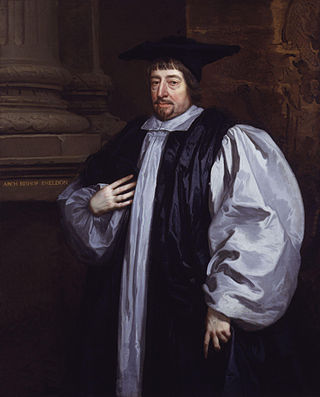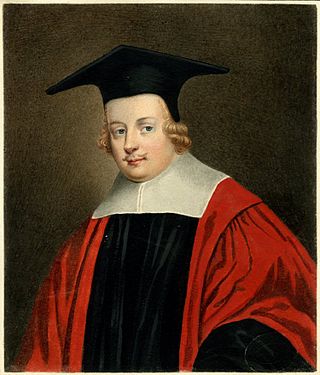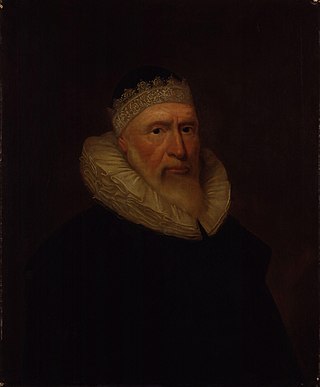Related Research Articles

Gilbert Sheldon was an English religious leader who served as the Archbishop of Canterbury from 1663 until his death.

James Shirley was an English dramatist.

Henry Hammond was an English churchman, who supported the Royalist cause during the English Civil War.

Sir Julius Caesar was an English lawyer, judge and politician who sat in the House of Commons at various times between 1589 and 1622. He was also known as Julius Adelmare.

Peter Heylyn or Heylin was an English ecclesiastic and author of many polemical, historical, political and theological tracts. He incorporated his political concepts into his geographical books Microcosmus in 1621 and Cosmographie (1657).
Anthony Hungerford (1614/15?–1657) was a Colonel in the English Parliamentary army who fought in Ireland during the War of the Three Kingdoms.

Thomas Johnson was an English botanist, and a royalist colonel in the English Civil War. He has been called the "father of British field botany".

Christopher Potter was an English academic and clergyman, Provost of The Queen's College, Oxford, controversialist and prominent supporter of William Laud.
Gerard Langbaine, the elder was an English academic and clergyman, known as a scholar, royalist, and Provost of Queen's College, Oxford during the siege of the city.
John Oliver (1601–1661) was an English royalist churchman, President of Magdalen College, Oxford, and Dean of Worcester.
John Parkhurst (1564–1639) was an English clergyman and academic, master of Balliol College, Oxford, from 1617.
Dr. Calybute Downing (1606–1643) was an English clergyman, a member of the Westminster Assembly. Also a civil lawyer, he is now remembered for political views, which moved from an absolutist position in the 1630s to a justification of resistance to authority by 1640, within a contractarian setting.
John Pocklington was an English Laudian clergyman and polemicist. By order of the Long Parliament, two of his works were burned in public.
Henry Tozer (1602–1650) was an English priest and academic, a Puritan of royalist views, elected to the Westminster Assembly but never sitting there.
Henry Wilkinson (1616–1690) was an English clergyman and academic, Principal of Magdalen Hall, Oxford and White's Professor of Moral Philosophy, and later an ejected minister.
John Allibond (1597–1658) was the master of Magdalen College School.
Henry Ferrers was an English antiquary and MP.
John Stoughton (1593?–1639) was an English clergyman, of influential millennial views. He was the stepfather and preceptor in their youth of Ralph Cudworth and James Cudworth.

Sir Lewes Roberts, also Captain Lewis Roberts (1596–1641), was a British merchant with the Levant Company and writer.
Laurence Wright (1590–1657), was an English physician, notably physician in ordinary to Oliver Cromwell and to the Charterhouse.
References
- ↑ Visitation of Bedfordshire, Harl. Soc. 1884, xix. 107
- ↑ Clark, Register, ii. 300
- ↑ Visitation of Bedfordshire, 1634, Harl. Soc. 107
![]() This article incorporates text from a publication now in the public domain : Emily Tennyson Bradley (1885–1900). "Fisher, Jasper". Dictionary of National Biography . London: Smith, Elder & Co.
This article incorporates text from a publication now in the public domain : Emily Tennyson Bradley (1885–1900). "Fisher, Jasper". Dictionary of National Biography . London: Smith, Elder & Co.